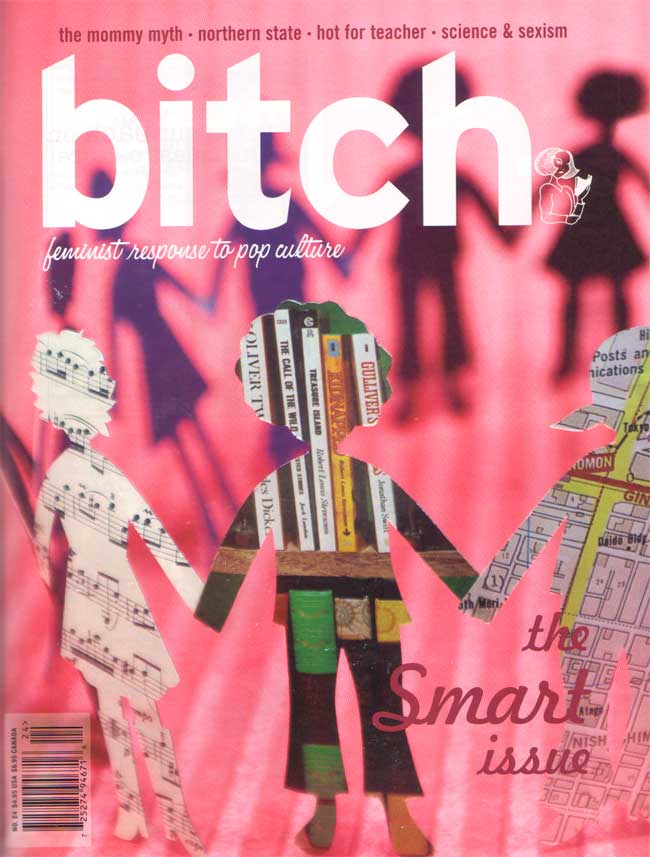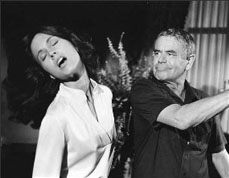Sunday, April 22, 2007

By EVELYN SHIH
STAFF WRITER
Two weeks ago, radio shock jock Don Imus let one of the most incendiary three-word insults in recent history slip through his lips: "nappy-headed hos."

That off-the-cuff remark – directed at the Rutgers women's basketball team and replayed ad nauseam – ignited a national debate on race, language, civility and sexism.
The Rev. DeForest "Buster" Soaries Jr. – who helped organize a meeting between Imus and the Rutgers team, at which the radio personality apologized – has called for a collective washing of the nation's dirty mouths, particularly entertainers who use sexist or harmful lyrics in their music. The Rev. Al Sharpton, Oprah Winfrey and an army of social and political critics are standing by with bars of soap.
"I think it's harming culture," said Marvin Sanders, co-host of a show on the conservative American Family radio network, of the off-color language permeating pop culture. "It's part of an ongoing degradation."
But what happens when loaded words shift in meaning, and their less offensive secondary meanings come into vogue? In recent years, once-taboo words like "ho," "bitch," "gay," "retarded" and "queer" have gained currency in the media and daily encounters, even as their original, hurtful meanings still resonate for some.
 |
| Image courtesy of cox.net. |
When generational or cultural differences shift the sands of language, are the words or the people who speak them at fault?
A look at the recent popularity and widespread use of the word "bitch," a centuries-old semantic chameleon, offers some insight.
Since medieval times, the "B"-word has been used to insult cantankerous women, usually by other adults. In the past 25 years, though, the word has taken on new meanings and has gained a whole new base of users: tweens and teenagers.
Beyond being a noun for men and women, "bitch" is also commonly now used as a verb -- meaning, to complain -- and an in-group moniker among teens and even younger children when addressing friends.
Heard on radio and TV
"People my age say it," said Jasmine Jones, a 13-year-old eighth-grader at David E. Owens Middle School in New Milford. "They get the hang of it when they're younger. It's normal, I think, but there are parents and teachers who wouldn't want to hear kids saying it."
 |
| Image courtesy of reviewjournal.com |
It helps that the "B"-word now regularly slips through television and radio censors, not the case a few decades ago. Central to the rhymes of rappers like Snoop Dogg and Missy Elliott, and even some mainstream pop hits, the word yawns out of radio stations and mouths across the nation in altered forms like "bee-yotch" and "biatch."
More recently, the catchphrase "Let's hug it out, bitch" from the HBO series "Entourage" legitimized it as a non-threatening, nearly intimate term of reconciliation or appreciation between men.
 |
| Image courtesy of houseofirony.com. |
"There are two elements in slang that really make it popular," said lexicographer David Barnhart, a specialist in new words. "One is that it has shock value, and the other is that it has a hidden-meaning value. ... When people want to communicate with their peers and not with an older generation, they will develop a vocabulary. It has to do with exclusiveness."
Identity is all
Anyone can use the "B"-word, but the ability to use the word with impunity comes with identity, according to Barnhart and others. Though nuance matters, who you are may matter more.
But though Winfrey and others have championed stamping out words like "bitch" altogether, some women embrace the word as empowering. Case in point: the feminist Bitch magazine, which has hounded misogynist culture since 1996.
 |
| Image courtesy of bitchmagazine.com. |
"There were never really any other names under consideration," said Andi Zeisler, co-founder and editor. "We felt 'bitch' was a word used for women who were speaking up, talking back or simply speaking their mind."
Despite this confidence, the magazine staff has had to deal with the controversy it sought to create. "We had women call up, really upset that after all they had done to stamp it out that we were bringing back the word," said Zeisler, the recent target of a boycott when she spoke at a Michigan college.
In her new book, "Pimps Up, Ho's Down: Hip Hop's Hold on Young Black Women," Vanderbilt professor T. Denean Sharpley-Whiting discusses female rappers like Lil' Kim and Foxy Brown, for whom the word "bitch" is not a stigma but a tattered badge of pride. Calling themselves "bitches" is a way of mouthing off to the Establishment and glorifying their sexual power, she said.
The dramatic 180-degree turn in the "B"-word's meaning may be surprising, but it's not new, according to Barnhart.
Six-century history
 |
| Image courtesy of answers.com. |
But in the mid-20th century, it began to mean "something surprising or extraordinary" and "something excellent, wonderful, exceptional and attractive."
All well and good. Yet despite these positive meanings, the one that persists, even among youth, is the original.
"Confronted with a woman in real life with that power and dominance, the reaction is still to be intimidated by her and to call her a 'bitch,' " remarked Zeisler.
 |
| Image courtesy of pearsonified.com. |
The same could be said for a list of other words and phrases that have gained more of a foothold in pop culture. The word "retarded," for example, has been largely shunned by polite society, including those who work with the mentally challenged, the preferred term.
Different definitions
In the past decade, however, entertainers and teenagers have begun using the word with more regularity in a variety of ways, including to mean being out of control (in good and bad ways), being severely intoxicated or inebriated, being silly or as a way of describing a melodic piece of music.
 |
| Image courtesy of artistopia.com. |
Perhaps the only way to stop the spread of words like "bitch," "retarded" and "gay" in youth culture is to wait until the youth join civil society. Or maybe, as radio host Sanders advocates, never to use the words in the first place.
"I'm the kind of person that just says what he's thinking without a filter," said Sanders. "But I know nothing vile is ever going to come out of my mouth, because my mother used to wash my mouth out with soap if I did. I can still taste the soap."
E-mail: shih@northjersey.com
Copyright © 2007 North Jersey Media Group Inc.
3 comments:
hey ev! great article..really enjoyed it =)
(just that the photo credits were a bit jarring cuz they were in line w/the body copy...can they be moved? heh i am an html idiot =p)
Hey Anne, thanks for the comment! It slightly bothered me when I first posted...I guess because this is the first time I've had a long article on here with so many pictures, the effect of the weird captions is especially jarring.
But anyway, I found a way to fix the problem! If you ever need to do this for your own blog, check out this website:
http://newsisaconversation.blogspot.com/2007/03/housekeeping-clean-pictures-with.html
or,
< div style="float:left">
< img style="float:left" src="blah"/>
< p style="clear:both;text-align:center"> caption< /p>
< /div>
for semantically valid, text-wrapping, floating box goodiness.
-gene
sorry, ive only been able to speak code recently.
Post a Comment